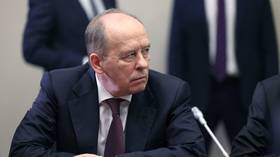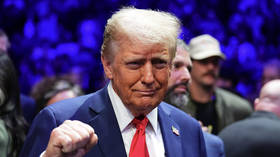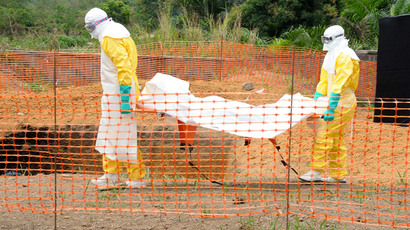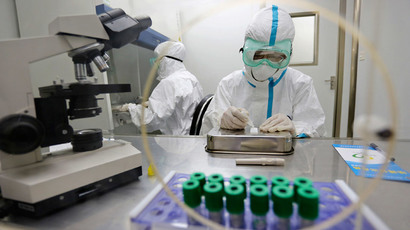Obama: US military will aid fight against Ebola in Africa
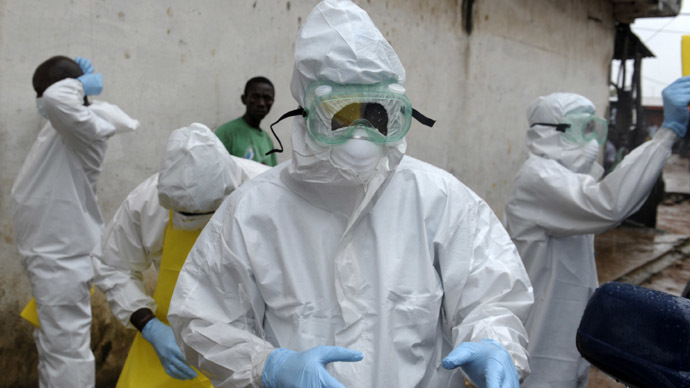
US President Barack Obama says the outbreak of Ebola in West Africa “could be a serious danger to the United States.” He pledged the US military will get involved, helping to set up isolation units and provide security for health workers.
Speaking on NBC’s ‘Meet the Press’, Obama said there could be implications if Washington and other powers did not send help to the region. Now it seems as though the president has decided it’s time to take action to tackle the problem.
"We're going to have to get US military assets just to set up, for example, isolation units and equipment there, to provide security for public health workers surging from around the world," Obama said.
"If we don't make that effort now, and this spreads not just through Africa, but other parts of the world, there's the prospect then that the virus mutates. It becomes more easily transmittable," he said in the interview broadcast on Sunday.
"And then it could be a serious danger to the United States," he added.
Over 2,100 people have died from the outbreak in five countries. The charity Medecins Sans Frontieres (Doctors Without Borders) has been critical of the West’s response to the crisis, with its President Joanne Liu saying in a speech to the United Nations that West Africa needs intervention from foreign states.
"Six months into the worst Ebola epidemic in history, the world is losing the battle to contain it," she said on September 2.
Meanwhile, the United Nations says that it will cost in the region of $600 million to try and get the epidemic under control. The European Union pledged $180 million to the region on Friday.
"The situation is going from bad to worse," said Kristalina Georgieva, the EU commissioner responsible for humanitarian aid. "We are helping make a difference on the ground but the needs are outpacing the international community's capacity to react."
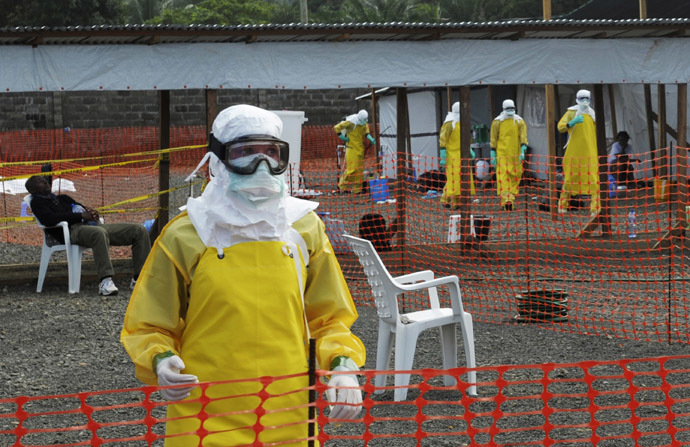
France has already announced it’s sending 20 specialists in biological disasters to West Africa. More than 40 percent of the Ebola cases in West Africa, where the outbreak began in March, have occurred in the past 21 days, officials from the World Health Organization (WHO) said, another indication that the epidemic is fast outpacing efforts to control it.
The overall fatality rate is 51 percent, ranging from a low of 41 percent in Sierra Leone to a high of 66 percent in Guinea, the WHO reported. The organization also mentioned that a lack of trained staff is hampering efforts to try and get the situation under control.
The outbreak was first confirmed in Guinea in March and has since gripped Liberia and Sierra Leone. Cases have also been confirmed in Nigeria to the east and Senegal to the west, where a Guinean student has been isolated.
Sierra Leone, which is one of the country’s that has been affected, says it will implement a four-day “lockdown” across the country in an attempt to contain the spread of Ebola.
Beginning on September 18, the nation will prohibit residents from leaving their homes for four days, with the hopes that health officials will be able to detect early-stage cases, Ibrahim Ben Kargbo, a presidential advisor in Sierra Leone, told Reuters.
“The aggressive approach is necessary to deal with the spread of Ebola once and for all,” he said.
However, the move has been criticized by Medecins Sans Frontieres, which believes it could lead to the disease spreading further.
"It has been our experience that lockdowns and quarantines do not help control Ebola as they end up driving people underground and jeopardizing the trust between people and health providers," said the group. "This leads to the concealment of potential cases and ends up spreading the disease further."
Scientists are working on trying to create a vaccine to tackle the epidemic. Human trials will start in early September on a serum that provided "short-term and partial long-term protection” after a successful trial on lab monkeys.




